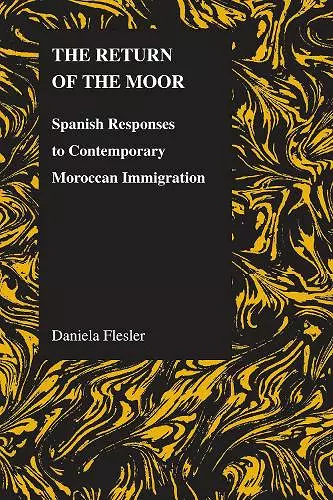The Return of the Moor
Spanish Responses to Contemporary Moroccan Immigration
Format:Paperback
Publisher:Purdue University Press
Published:30th Mar '08
Currently unavailable, our supplier has not provided us a restock date

With the intense economic development and accelerated modernization experienced by Spain since the 1970s, and especially following its entrance into the European Economic Community in 1986, the country has undergone a rapid inversion in migratory patterns. After being an exporter of economic migrants for almost a century, in the last twenty years Spain has seen itself on the receiving end of immigration. Coinciding with a time when Spain is highlighting its belonging to Europe, the growing presence of Moroccan immigrants in particular confronts Spanish society with the repressed non-European, African and Oriental aspects of its national identity.""The Return of the Moor"" examines the anxiety over symbolic and literal boundaries permeating the Spanish reception of these immigrants through an interdisciplinary analysis of social, fictional, and performative texts. It argues that Moroccans constitute a 'problem' to Spaniards not because of their cultural differences, as many claim, but because they are not different enough. Perceived as 'Moors', they conjure up past ghosts that continue to haunt the Spanish imaginary, revealing the acute tensions inherent in Spain's liminal position between Europe and Africa.
This is the best analysis I have read to date of Spain's paradoxical adoption of a 'first-world' and European identity with almost complete disregard for its historical past as a country of emigrants and, under Francoism, one that constructed its identity by stressing its difference from a modern and decadent Europe. Flesler does an excellent job of reviewing and rewriting the traditional historiographical narrative of the Muslims' arrival in AD 711 as the sudden and brutal interruption of a Christian continuum in Spain. In addition, she incorporates critical discourses from psychoanalysis, deconstruction, and post-colonial theory in order to present an incisive reading of a wide range of textual practices: from popular festivals and tourist brochures to press articles and popular debates, to novels and film."—Jaume Marti-Olivella, Associate Professor of Hispanic Cinema and Cultural Studies, University of New Hampshire
ISBN: 9781557534835
Dimensions: unknown
Weight: 414g
254 pages